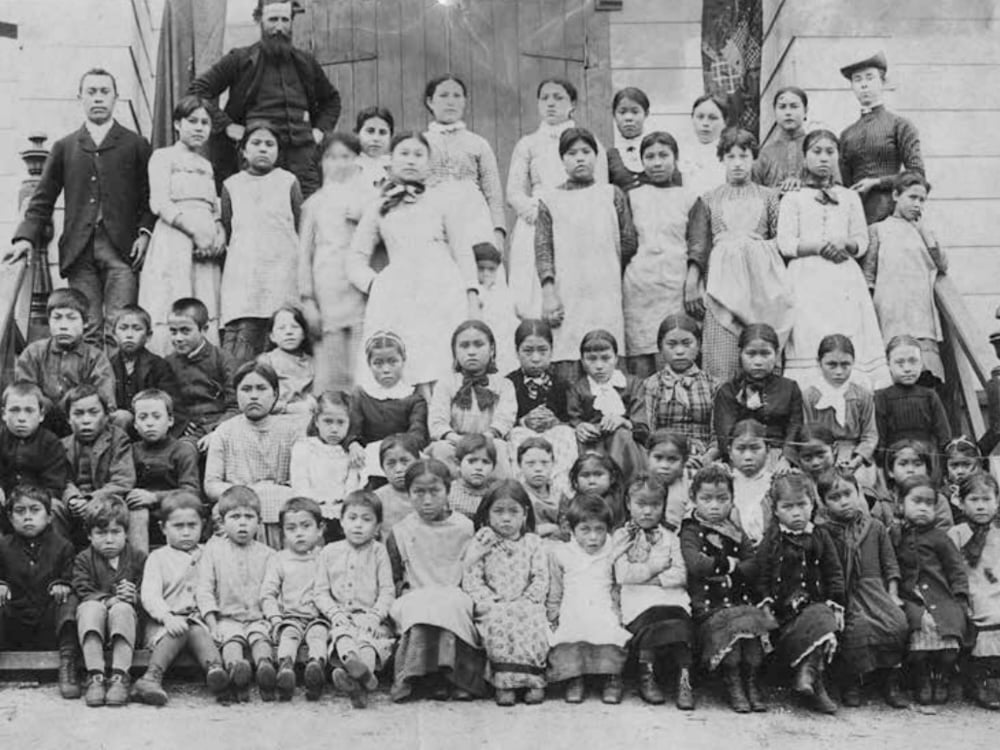Top Stories
Canada Reflects on a Decade Since Landmark Truth Report

On June 2, 2015, the Truth and Reconciliation Commission (TRC) of Canada released a groundbreaking report that addressed the country’s troubling history of Indigenous residential schools. This report outlined the systemic abuses faced by Indigenous children and called for a nationwide reckoning. As Canada marks ten years since this pivotal moment, it is crucial for all citizens to engage with its findings and reflect on the ongoing impact of these injustices.
The TRC’s comprehensive report documented the experiences of over 150,000 Indigenous children who were forcibly removed from their families and placed in residential schools. These institutions aimed to assimilate Indigenous children into Euro-Canadian culture, often at the cost of their language, heritage, and well-being. The findings revealed a dark chapter in Canadian history, highlighting not only the physical and emotional abuse suffered but also the long-lasting effects on Indigenous communities.
Reflecting on the Report’s Findings
The report included 94 Calls to Action, urging all levels of government and institutions to take steps towards reconciliation. These actions range from increasing funding for Indigenous education to addressing the overrepresentation of Indigenous peoples in the criminal justice system. The TRC emphasized the importance of recognizing and respecting Indigenous rights, culture, and traditions.
According to the National Centre for Truth and Reconciliation, the report has spurred some positive changes, yet many challenges remain. For instance, Prime Minister Justin Trudeau acknowledged the need for ongoing efforts to address the legacy of residential schools. In a statement, he noted, “We must continue to work together to foster healing and reconciliation for all Indigenous peoples.”
Despite some progress, many Indigenous communities express frustration over the pace of change. The discovery of more than 3,200 burial sites near former residential schools has reignited discussions about accountability and justice. These findings underscore the urgent need for a thorough investigation into the treatment of children in these institutions.
The Path Forward
As Canada reflects on the past decade, the importance of education and awareness cannot be understated. The TRC’s report serves as a vital resource for understanding the historical context of Indigenous issues in Canada. Engaging with this document is essential for fostering a more inclusive society and healing the wounds inflicted by colonial policies.
Several organizations continue to push for the implementation of the TRC’s Calls to Action, advocating for sustained government commitment and community involvement. Indigenous voices play a crucial role in this process, ensuring that their perspectives shape the narrative of reconciliation.
The TRC’s report is not merely a historical account; it is a call to action for all Canadians. Understanding the past is a vital step toward building a more equitable future. Engaging with the TRC’s findings can help bridge the gap between Indigenous and non-Indigenous communities, fostering a deeper understanding and respect for diverse cultures.
As Canada moves forward, the legacy of the Truth and Reconciliation Commission remains a pivotal point of reflection. The journey toward healing demands collective responsibility and a commitment to change. Engaging with this history is essential for every Canadian, ensuring that the lessons learned will not be forgotten.
-

 Education3 months ago
Education3 months agoBrandon University’s Failed $5 Million Project Sparks Oversight Review
-

 Science4 months ago
Science4 months agoMicrosoft Confirms U.S. Law Overrules Canadian Data Sovereignty
-

 Lifestyle3 months ago
Lifestyle3 months agoWinnipeg Celebrates Culinary Creativity During Le Burger Week 2025
-

 Health4 months ago
Health4 months agoMontreal’s Groupe Marcelle Leads Canadian Cosmetic Industry Growth
-

 Science4 months ago
Science4 months agoTech Innovator Amandipp Singh Transforms Hiring for Disabled
-

 Technology4 months ago
Technology4 months agoDragon Ball: Sparking! Zero Launching on Switch and Switch 2 This November
-

 Education4 months ago
Education4 months agoRed River College Launches New Programs to Address Industry Needs
-

 Technology4 months ago
Technology4 months agoGoogle Pixel 10 Pro Fold Specs Unveiled Ahead of Launch
-

 Business3 months ago
Business3 months agoRocket Lab Reports Strong Q2 2025 Revenue Growth and Future Plans
-

 Technology2 months ago
Technology2 months agoDiscord Faces Serious Security Breach Affecting Millions
-

 Education4 months ago
Education4 months agoAlberta Teachers’ Strike: Potential Impacts on Students and Families
-

 Education3 months ago
Education3 months agoNew SĆIȺNEW̱ SṮEȽIṮḴEȽ Elementary Opens in Langford for 2025/2026 Year
-

 Science4 months ago
Science4 months agoChina’s Wukong Spacesuit Sets New Standard for AI in Space
-

 Business4 months ago
Business4 months agoBNA Brewing to Open New Bowling Alley in Downtown Penticton
-

 Business4 months ago
Business4 months agoNew Estimates Reveal ChatGPT-5 Energy Use Could Soar
-

 Technology4 months ago
Technology4 months agoWorld of Warcraft Players Buzz Over 19-Quest Bee Challenge
-

 Business4 months ago
Business4 months agoDawson City Residents Rally Around Buy Canadian Movement
-

 Technology4 months ago
Technology4 months agoFuture Entertainment Launches DDoD with Gameplay Trailer Showcase
-

 Technology2 months ago
Technology2 months agoHuawei MatePad 12X Redefines Tablet Experience for Professionals
-

 Top Stories3 months ago
Top Stories3 months agoBlue Jays Shift José Berríos to Bullpen Ahead of Playoffs
-

 Technology4 months ago
Technology4 months agoGlobal Launch of Ragnarok M: Classic Set for September 3, 2025
-

 Technology4 months ago
Technology4 months agoInnovative 140W GaN Travel Adapter Combines Power and Convenience
-

 Science4 months ago
Science4 months agoXi Labs Innovates with New AI Operating System Set for 2025 Launch
-

 Technology4 months ago
Technology4 months agoNew IDR01 Smart Ring Offers Advanced Sports Tracking for $169










